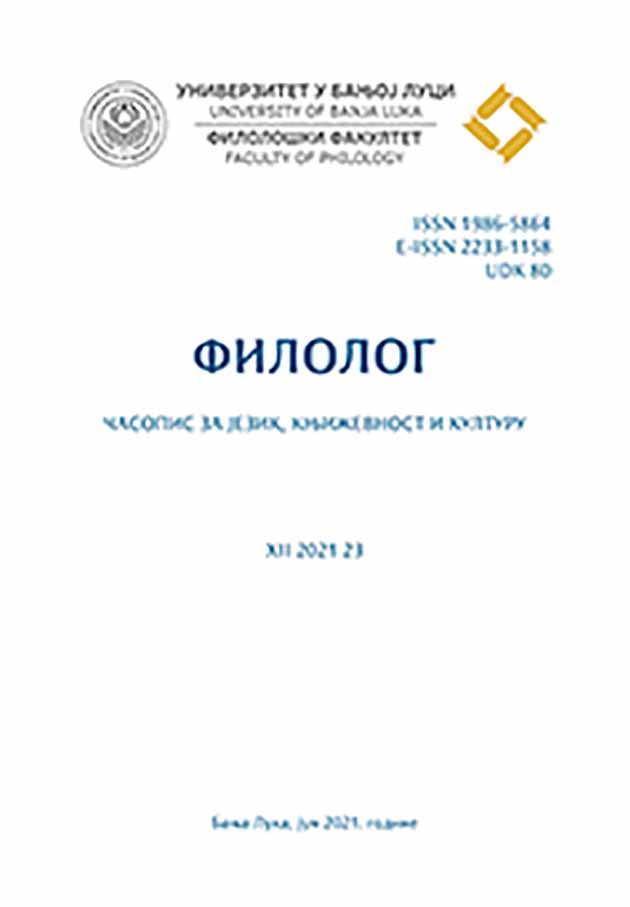Принцип локализације и проучавање социјативних значења у руском и српском језику
The Localisation Principle and the Study of the Sociativity Meaning in Russian and Serbian
Author(s): Marija M. OpačićSubject(s): Syntax, Semantics, Comparative Linguistics, Eastern Slavic Languages, South Slavic Languages
Published by: Филолошки факултет Универзитета у Бањој Луци
Keywords: typology of the russistic linguistic; external and internal coordinate types; functional grammar; localisation principle; Russian; Serbian;
Summary/Abstract: In this paper, our attention is focused on the definition of external and internal coordinate types in study of sociativity meaning in Russian and Serbian. In the second part of this article we consider P. Piperʼs view on the localisation principle and the notion of the general prototype in linguistic typology on the example of the functionalism. In the third part we represent two concrete prototypes of functional theories in Russistics – A. V. Bondarko’s functional grammar and P. Piper’s theory of semantic localisation. The internal coordinative type is explained in the fourth part in semantic analysis of the sociativity meaning in Russian and Serbian. Our coordinative classification is based on the distinction of structural and semantic subtypes. The special, gradual coordinate type is noticed on the border of the external and internal coordinate types. In conclusion, we presented the most important criteria in our paper – the notion of the prototype, the external and internal coordinate types, the dominant and gradual realisation.
Journal: Филолог – часопис за језик, књижевност и културу
- Issue Year: 2021
- Issue No: 23
- Page Range: 188-210
- Page Count: 23
- Language: Serbian

